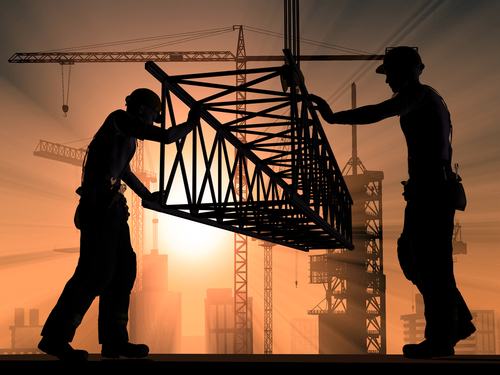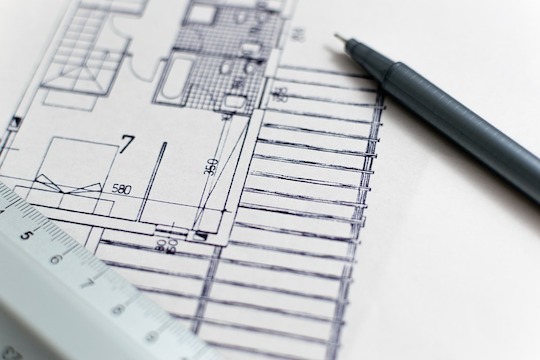Industrial installation refers to a system specifically designed for manufacturing or processing products through systematic labour or ongoing automated operations. It includes facilities where agricultural or other products are regularly processed or stored for third parties, whether for resale or further distribution.
An industrial installation involves the setup and connection of equipment, systems, and infrastructure in a factory, manufacturing plant, or other industrial facility. This process ensures that all components operate effectively and safely.
Industrial installations cover a broad range of activities, including the setup of machinery, electrical systems, plumbing, pipelines, and automation equipment. The primary goal is to create a functional and efficient environment for industrial processes, ensuring the safe and reliable operation of equipment and machinery.

Types of Industrial Installations and Maintenance Services
- Electrical installations, involving the installation and wiring of electrical equipment, ensuring a safe and reliable power supply. These include:
- Uninterruptible power systems (UPS).
- Transformers and electrical substations.
- Safety grounding systems.
- Lighting and lighting systems.
- Supervision and control systems for electrical installations and plant equipment.
- Protection against surges and short circuits.
- Equipment Installation, including setting up industrial machinery, electrical panels, and mechanical systems to meet operational requirements.
- Pipeline and Structural Fabrication, including the installation of industrial pipelines, welding services, and structural framework installations as determined by the medium they transport or the type of pipeline.
- Electrical and Automation Services, including the installation and maintenance of control panels, PLC (Programmable Logic Controller) systems, and industrial automation components for process control and monitoring.
- Anti-corrosion and Insulation, including the application of protective measures to equipment and pipelines to prevent corrosion and ensure proper insulation.
- Compliance and Safety Inspections, thereby ensuring that all installations adhere to South African safety regulations and industry standards.
- Preventative Maintenance, involving regular servicing of machines and systems to prevent unexpected breakdowns and improve efficiency.
- Repairs and Troubleshooting, including diagnosing and repairing problematic areas in industrial systems, such as electrical faults, mechanical failures, and software malfunctions.
- HVAC and Refrigeration Services, including the maintenance of industrial heating, ventilation, air conditioning, and refrigeration systems.
Safety and Efficiency Considerations:
Industrial installations require careful planning and execution, considering safety regulations, industry standards, and the specific requirements of the facility and its operations.
Examples:
- Installing a new production line in factories.
- Setting up a power distribution system within manufacturing plants.
- Connecting pipelines for chemical processing plants.
- Installing automation systems for robotics and conveyor belts.
What is Industrial Maintenance?
Industrial maintenance involves the regular inspection and upgrading of processes and machinery to ensure that facilities operate efficiently and safely. A select team of professionals, including mechanics, technicians and engineers work together to maintain warehouses, production lines, and distribution facilities for companies in different industries. They collaborate to optimise performance and minimise downtime. Also referred to as plant maintenance, common tasks in industrial maintenance include:
- Regularly inspecting and updating equipment lubricants
- Carrying out maintenance on boilers, generators, and storage tanks
- Assessing system breakdowns to minimise operational impact
- Repairing both electrical and mechanical equipment
- Troubleshooting equipment issues to identify root causes
- Ensuring all equipment complies with industry standards
- Scheduling and coordinating routine maintenance tasks
- Ordering necessary materials and replacement equipment promptly
- Training by educating operators and staff on the proper use, safety features, and care of equipment
Industrial Maintenance is essential in the following industries:
- Manufacturing: Manufacturing companies carry out industrial maintenance as they produce and distribute goods to their customers across various industries, including automotive, electronic, textiles, food processing, furniture manufacturers and heavy machinery production. Equipment used could be either mechanical or electrical. Mechanical equipment involves machines and systems that perform tasks through physical movement and force, while electrical equipment uses electricity to power devices and control systems.
- Construction and Engineering: Construction companies rely on heavy machinery and stored materials, making it essential to maintain a safe and efficient work environment. Professionals in this field may specialise in inspecting and repairing entire machines or focus on specific components, ensuring that equipment operates smoothly and safely within the construction operations. This includes structural fabrication, welding, and heavy machinery maintenance.
- Petrochemical and Refineries: Refineries utilise chemical engineering to produce a variety of goods and materials, often involving processes that operate under extreme heat conditions. This environment necessitates regular maintenance of equipment, including piping and ventilation systems, to ensure safe and efficient operation. This involves pipeline installation, tank maintenance, and chemical plant upkeep.
- Agriculture and Food Processing: Food processing plants utilise various automated machines to handle, manipulate, and package food products. It is essential to maintain the machinery in processing plants, irrigation systems, and packaging lines to keep production running at maximum efficiency and safety.
- Mining and Energy: Industrial maintenance is critical for energy companies, whether involved in electricity, gas, or solar power production, to operate efficiently in both residential and commercial sectors. This includes the installation and maintenance of mining equipment, conveyor systems, and power generation facilities.
- Automotive and Aerospace: Automotive and aerospace companies are responsible for the manufacturing, maintenance, and distribution of parts and vehicles. To ensure reliable operations, assembly plants and distribution facilities must implement a comprehensive industrial maintenance plan.
- Printing: Printing companies regularly produce large volumes of printed material using mechanical or automated processes. Regular maintenance of equipment, either mechanical or electronic, such as rotary presses and embossing machines, is essential to ensure the reliable production of high-quality products.
- Logistics: Preserving the efficiency of transportation and warehousing equipment.
Types of Industrial Maintenance
There are several types of industrial maintenance, such as:
Reactive
Reactive industrial maintenance refers to maintenance activities performed after equipment has failed. This approach can be cost-effective for companies, as it allows them to incur maintenance costs only as and when necessary, rather than scheduling routine maintenance for correctly functioning machinery. However, manufacturing companies often evaluate the associated risks, such as potential production delays and the likelihood of equipment failures, to minimise the impact that repairs may have on their overall productivity.
Preventative
Preventative industrial maintenance involves scheduling regular maintenance activities to identify and address potential failures before they occur. By implementing this proactive approach, companies can ensure their equipment operates efficiently and can plan inspections or repairs during downtime, minimising disruptions to their schedules. While preventative maintenance may incur higher upfront costs, it allows companies’ accountants to budget effectively, as they can anticipate when industrial mechanics will conduct necessary inspections and maintenance tasks.
Reliability-centred
Reliability-centred maintenance (RCM) combines both reactive and preventative maintenance strategies to enhance operational efficiency. This approach allows facility supervisors to develop tailored maintenance plans for each piece of equipment, maximising cost savings and productivity. For instance, they might schedule more frequent inspections for older machinery that is more prone to failure. Conversely, for equipment that has minimal impact on overall productivity, supervisors may opt for a reactive maintenance model, enabling operations to adapt around potential failures without significant disruptions.
What Do Industrial Installation and Maintenance Specialists Do?
Industrial installation and maintenance specialists are essential to the efficient operation of manufacturing plants, industrial facilities, and large-scale infrastructure projects in South Africa. Their expertise covers the installation, repair, and maintenance of mechanical, electrical, and automation systems that keep industries operating efficiently and reliably.
Importance of Industrial Maintenance
Effective industrial maintenance is vital for helping businesses avoid costly downtime, improve productivity, and extend the lifespan of essential machinery. By conducting regular maintenance, companies can significantly reduce the risk of workplace accidents and ensure compliance with safety regulations, such as the Occupational Health and Safety Act (OHSA) in South Africa. This proactive approach not only promotes a safer work environment but also contributes to a more efficient and reliable operational framework.
Legal Compliance
To ensure the highest standards of safety and quality, industrial installation and maintenance specialists must comply with the regulations established by the South African Bureau of Standards (SABS) and the Engineering Council of South Africa (ECSA). Compliance with these standards ensures that both installation and maintenance practices meet national benchmarks for performance and safety, thereby protecting both workers and the environment.
In Summary
Industrial installation and maintenance play a crucial role in ensuring the continuous and efficient operation of industries in South Africa. Through proper installation, conducting regular maintenance, and performing timely repairs, industrial installation and maintenance specialists enable businesses to optimise their productivity, reduce downtime, and adhere to safety regulations, enabling companies and organizations to achieve their operational goals more effectively and efficiently.

